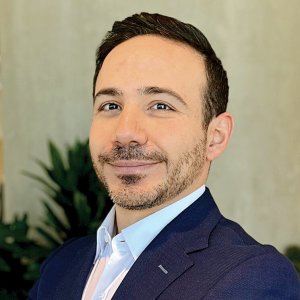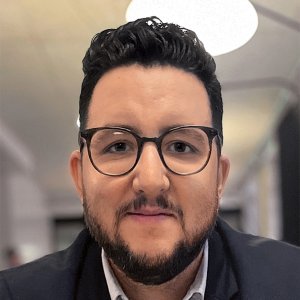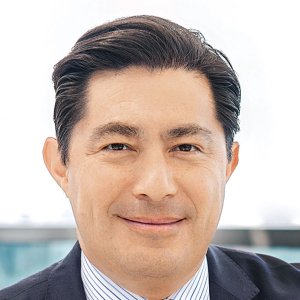How To Operate a Training Center Throughout a Pandemic

STORY INLINE POST
Q: How would you describe the operational realities of keeping your service offering open throughout the pandemic?
A: This was a complicated subject in all the markets that RelyOn Nutec operates in. Our training and development capabilities at our facilities were definitely affected. Despite this reality, we overcame the obstacles that presented themselves throughout the pandemic by implementing new virtual and digital training models, frameworks, courses and programming. I am proud to say that we adapted to the situation quite quickly. Our instructors rapidly mastered the digital platforms that we started using. The same can be said of our sales staff, who swiftly shifted their promotional materials and duties to digitalized channels so that the same market could be reached through different means. Our operational reality was constant. We did not shut down at all but we did change many of the paths and venues through which we reach our students, or “delegates,” as we also call them.
Now that we are exiting the pandemic and there is a little more flexibility in terms of regulations and practices to allow for more face-to-face schooling, we are readjusting to that as well. In fact, technically speaking, our entire face-to-face curriculum continued throughout the pandemic. It was merely reduced for classroom safety reasons. In a way, it has been just a matter of getting class sizes back to a certain pre-pandemic level. At the same time, many of the digital training modalities that we adopted during the pandemic are undoubtedly here to stay. They worked perfectly, although we are still fine-tuning them with each new iteration. They have proven to be invaluable tools for many reasons that go beyond the way in which they helped us to survive throughout the pandemic. Our digital transformation has also motivated us to get more involved in developing digital training tools, which we are doing through our digital platform, RelyOn Know-How. This path represents the future for us.
Q: How do these digital tools broaden the scope of safety training for the whole industry?
A: They definitely help us reframe the conversation substantially. It democratizes access, for starters. It also gives us a new way to deal with saturation. It is important to mention here that the services we offer are essential for the entire industry, especially in the offshore context of Ciudad del Carmen. Of course, our ability to supply them to everybody is obviously not unlimited, so anything that helps us deal with overcapacity and overbooking at our physical training facilities plays an important role in the functioning of the whole industry. We can make our classes larger and we can extend them to any number of people who might not be able to be physically present at our facilities, which is a logistical consideration that also became more relevant when more people were spending downtime in hotel rooms fulfilling quarantine requirement after flying into the port to begin their shifts or contracts.
Obviously, all of these digital options had to be developed, as my colleagues have mentioned in past interviews, through a complete collaboration with all the verifiers and certifiers in the industry. They were somewhat reluctant at first to allow for some of these digital safety training courses and modules to replace some of the face-to-face programs but we convinced them once we made it clear that to receive a certification, all applicants and delegates were required to complete a hybrid modality that combined digital classes and live exercises and tests. We accomplished a similar compromise with the external certifications that we offer, such as those managed by OPITO and IADC authorities, through the development and use of their own digital platforms.
Q: To what degree are you getting involved in new types of projects as the pandemic begins to wane?
A: We want to be much more closely involved with all the private operators that are expanding the scope of their projects in the Campeche Basin and the entire south of the GOM. This market is a big part of our future agenda. We are also expanding our offering of well control safety training courses in partnership with the International Well Control Forum (IWCF) and their own proprietary digital platforms. We are promoting this offering the most. We have partnered up with Aberdeen Drilling School to optimize our well control course implementation with both Mexican and international instructors to standardize the quality of these training modules. We want our delegates in Mexico to take well control courses that are up to the standard of those they would be taking in Aberdeen if they were working in the North Sea.
Well control courses are particularly relevant in Mexico because of the way in which drilling activity has not only continued but increased on the Mexican side of the GOM throughout the pandemic. Well control courses can guarantee a safe worksite in the most grueling and technically complicated of drilling campaigns. Drillers also need to work under safety protocols that do not force them to sacrifice the quality and precision of their work, which would endanger the integrity of their wells. There are four levels to this kind of training and all four are needed to operate a drilling project in the complex offshore environments that are common in the Campeche Basin. They are also relevant for onshore operations, where drilling activity in Mexico is also ramping up. Other OPITO certifications that are becoming increasingly relevant for our service portfolio include our Major Emergency Management Initial Response (MEMIR) courses, which are geared toward the upper management of offshore worksites and vessels, especially on-site safety authorities. These courses are more focused on the general decision-making processes that define whether or not an accident will result in avoidable casualties or not.
RelyOn Nutec is an international safety training services provider for the oil and gas, maritime, industrial and wind power sectors. The company offers over 200 courses from its Mexican headquarters in Ciudad del Carmen.








 By Pedro Alcalá | Senior Journalist & Industry Analyst -
Fri, 11/05/2021 - 10:37
By Pedro Alcalá | Senior Journalist & Industry Analyst -
Fri, 11/05/2021 - 10:37
















